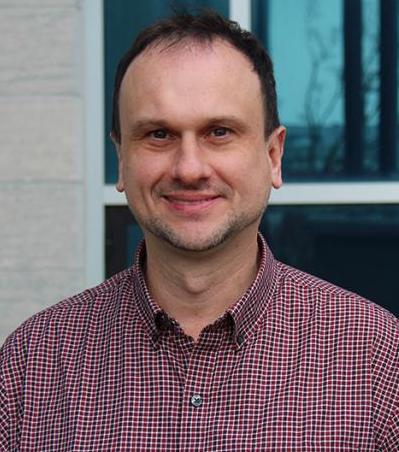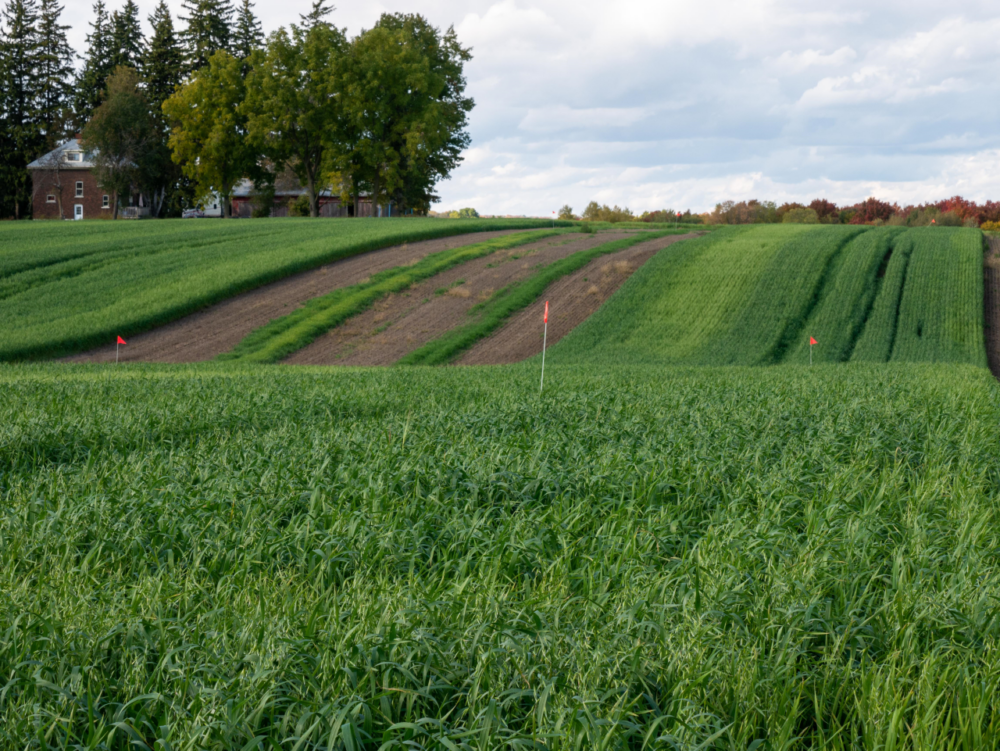The ground may now be frozen in most parts of Canada, but beneath it is a complex ecosystem nurturing various life forms.
Dec. 5 is World Soil Day, and University of Guelph researchers are working hard to give soil the recognition it deserves.

Dr. Adam Gillespie is a professor in the School of Environmental Sciences at the Ontario Agricultural College, as well as a member of Soils at Guelph, a U of G research group dedicated to developing sustainable soil management practices in agriculture.
One of Gillespie’s current projects may drastically change how producers test soil, an important tool in evaluating its health.
Using infrared spectroscopy, Gillespie and his team create a “fingerprint” of the chemical bonds within the soil to its properties. The fingerprint might indicate that the soil is high in carbon or lacks potassium. It also provides database-informed, regional-specific soil management recommendations for producers.
The researchers hope their tool – still being tested on research farms – will replace traditional time-consuming and costly methods that involve extracting samples and sending them to a lab to be analyzed.
Those conventional methods cannot analyze the full topography of a farm, leading to gaps in coverage.
“What ends up happening is you sort of manage the land blind,” said Gillespie, whose tool would eliminate steps and allow faster lab analysis, thus reducing costs.
Other products are being developed that would see producers use probes that would provide instant insights into soil health.
“Maybe there’s some areas where there’s a different texture you want to verify. Through infrared spectrometry, you could get a better handle on what nutrients to add than with traditional testing,” Gillespie explained.
Improve soil, improve human health

First celebrated in 2014, World Soil Day was created by the United Nations and the Food and Agriculture Organization to recognize the importance of healthy soil and sustainable soil management.
Soils need a delicate balance of organisms, minerals and organic matter to thrive. Without that balance, soil becomes degraded or even toxic, contributing to pollution and climate change, a concept known as soil nutrient loss.
Healthy soil provides most of the essential chemical elements needed for healthy plants and for human nutrition. Soil contains dozens of vitamins and nutrients such as calcium and iron found in many foods.
That link between soil and human health is at the centre of this year’s theme: “Soils: Where food begins.”
While 95 per cent of food comes from soil, 33 per cent of the world’s soil is degraded, says the UN. The agency says 58 per cent more food could be produced globally through sustainable soil management.
“People are starting to really make that link between soil quality and crop yields. For example, if you have a bad, dry year but healthy soils, you’ll still be able to get something,” said Gillespie.
“If you manage soil sustainably, you might be able to have healthy soils around for a long time – hopefully forever – so you’re able to produce that food. And this tool is just one way to do that.”
Gillespie’s research is funded by the Ontario Agri-Food Innovation Alliance, a collaboration between the Government of Ontario and the University of Guelph.
Contact:
Dr. Adam Gillespie
agilles@uoguelph.ca
